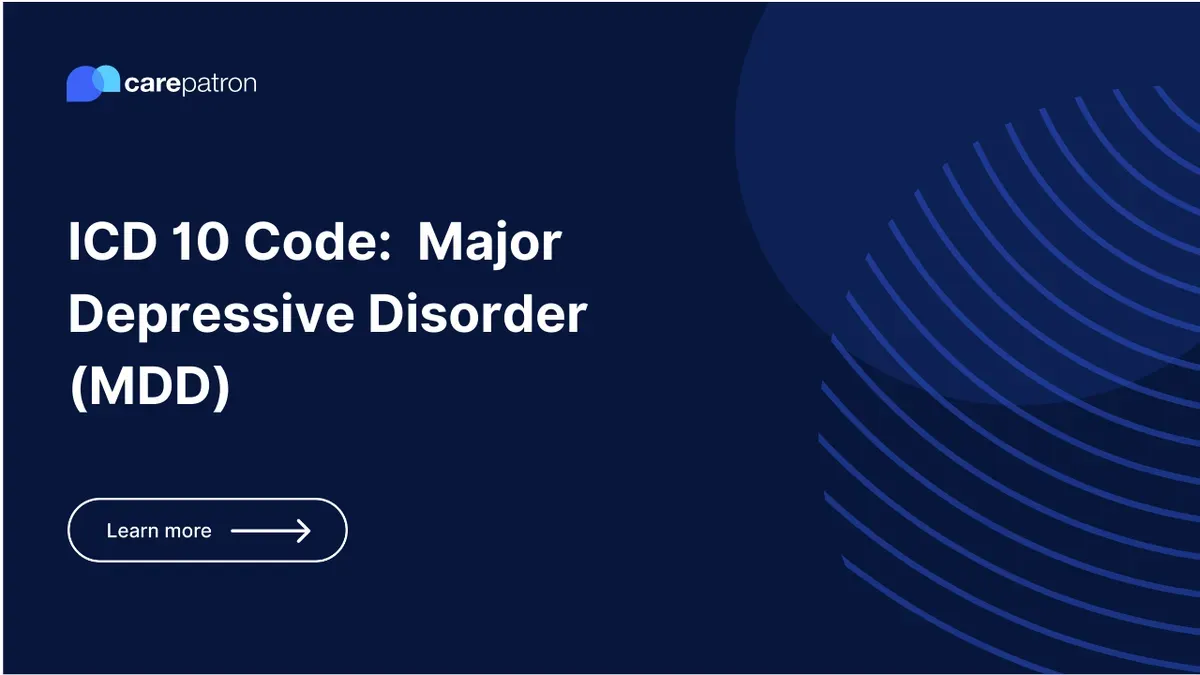
MDD ICD-10-CM Codes
Uncover the importance of ICD-10 codes for MDD diagnosis, treatment, and billing procedures. Gain insights into how these codes shape the management of MDD.
Use Code
Commonly asked questions
An MDD ICD code is used when a healthcare professional diagnoses a patient with Major Depressive Disorder. The specific code used will depend on the severity and type of depressive episodes. These codes are essential for accurate documentation and communication between healthcare providers.
Common treatments for MDD include psychotherapy (cognitive-behavioral therapy, interpersonal therapy), medication (antidepressants), and in severe cases, electroconvulsive therapy. Lifestyle changes, such as regular exercise, a healthy diet, and adequate sleep, can also help manage symptoms of MDD.
A diagnosis code for MDD is a specific code that corresponds to the diagnosis of Major Depressive Disorder. It is based on the International Classification of Diseases (ICD-10) system. Each code indicates the type and severity of the depressive episode. For instance, F32.0 indicates a mild depressive episode, while F33.2 represents a recurrent severe depressive episode without psychotic symptoms. These codes are used for classification, billing, and research purposes.
EHR and practice management software
Get started for free
*No credit card required
Free
$0/usd
Unlimited clients
Telehealth
1GB of storage
Client portal text
Automated billing and online payments
